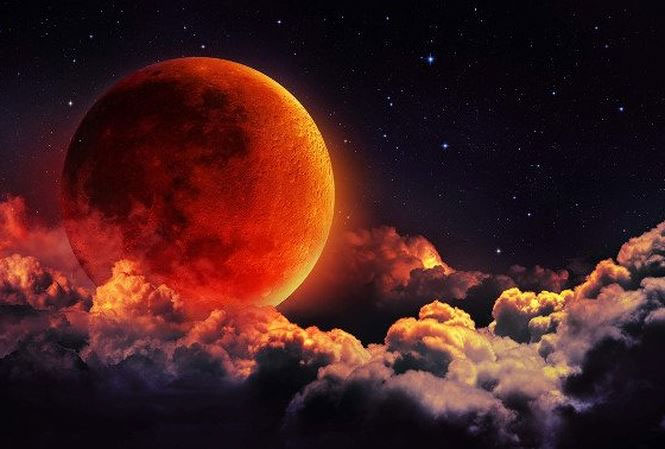Vietnam has more than 5 hours of total lunar observations
Vietnamese astronomers will have more than 5 hours to observe the total lunar eclipse on the night of the 27th and the morning of July 28. It takes another 3 years for Vietnam to observe this amazing astronomical phenomenon.
The total eclipse occurred on the night of 27/7 as one of the 2 full lunar eclipses that occurred this year and is one of the most astronomical events to look forward to in 2018. The last time, happened on the night of January 31 / 2018 in a rare astronomical event:.

Vietnam will have more than 5 hours to observe the total lunar eclipse on the night of the 27th and the morning of July 28.
The total eclipse occurs when the Moon enters the shadow region of the Earth and is completely obscured. Then, from the Earth, the Moon will be dark red, so this phenomenon is also known by its name
This eclipse, which can be viewed from a large area of Europe, Africa, Indian Ocean, parts of Asia and Australia. Vietnam can observe most events.
In Vietnamese time, the lunar eclipse begins at 00:14 minutes, ending at 6:28 minutes on the night of the 27th and the morning of July 28. The real moon is half-dark (Earth's dark shadow begins to obscure the Moon's surface) starting at 0014 minutes, to 1: 14 minutes, the partial eclipse (the Moon begins to be obscured and red) begins. At 2:30 am, the full moon (the moon turns blood red) begins and reaches its maximum at 3h12 minutes. At 4h13, the total eclipse ended and then moved to partial eclipse, half-moon eclipse and ended completely at 628 am on July 28. In Vietnam, about 5h35 minutes of the Moon setting. Thus, we can observe almost the whole of this total eclipse.
Compared to the total solar eclipse, the whole lunar eclipse is easier to catch. However, it has to wait nearly 3 years, in May 2021, Vietnamese astronomers can observe this phenomenon again.
Unlike eclipses (can only be observed through dedicated telescopes or indirect observation), eclipses can be observed directly with the naked eye. The ideal observation place is quiet, airy, low light and air pollution.
Note, see the weather forecast before observing .
- Which region in Vietnam can see the longest eclipse of the century?
- Vietnam is going to receive a full lunar eclipse on April 4
- Locations can view the lunar eclipse on April 4
- Vietnam is about to see a total eclipse
- Why will the lunar eclipse of 27/7/2018 be unusually long?
- Secret to see the most special 'Blood Moon' in the 21st century on April 4 in Vietnam
- When will Vietnam observe the next eclipse?
- Tomorrow (8/10) Vietnam see the phenomenon of blood moon
- Full lunar eclipse
- Full lunar eclipse after 400 years
- The first live video of the
- Beam photos of beautiful blood moon around the world
 Van Allen's belt and evidence that the Apollo 11 mission to the Moon was myth
Van Allen's belt and evidence that the Apollo 11 mission to the Moon was myth The levels of civilization in the universe (Kardashev scale)
The levels of civilization in the universe (Kardashev scale) Today Mars, the sun and the Earth are aligned
Today Mars, the sun and the Earth are aligned The Amazon owner announced a secret plan to build a space base for thousands of people
The Amazon owner announced a secret plan to build a space base for thousands of people Rare 'ring of fire' solar eclipse in South America
Rare 'ring of fire' solar eclipse in South America  Captured the image of a 'flying saucer' passing by and then disappearing right at the time of the total solar eclipse
Captured the image of a 'flying saucer' passing by and then disappearing right at the time of the total solar eclipse  Eclipses revolutionized science
Eclipses revolutionized science  Admire the breathtaking solar eclipse images taken from beyond Earth
Admire the breathtaking solar eclipse images taken from beyond Earth  Where on Earth sees the most solar eclipses?
Where on Earth sees the most solar eclipses?  The longest eclipse viewing flight in history
The longest eclipse viewing flight in history 